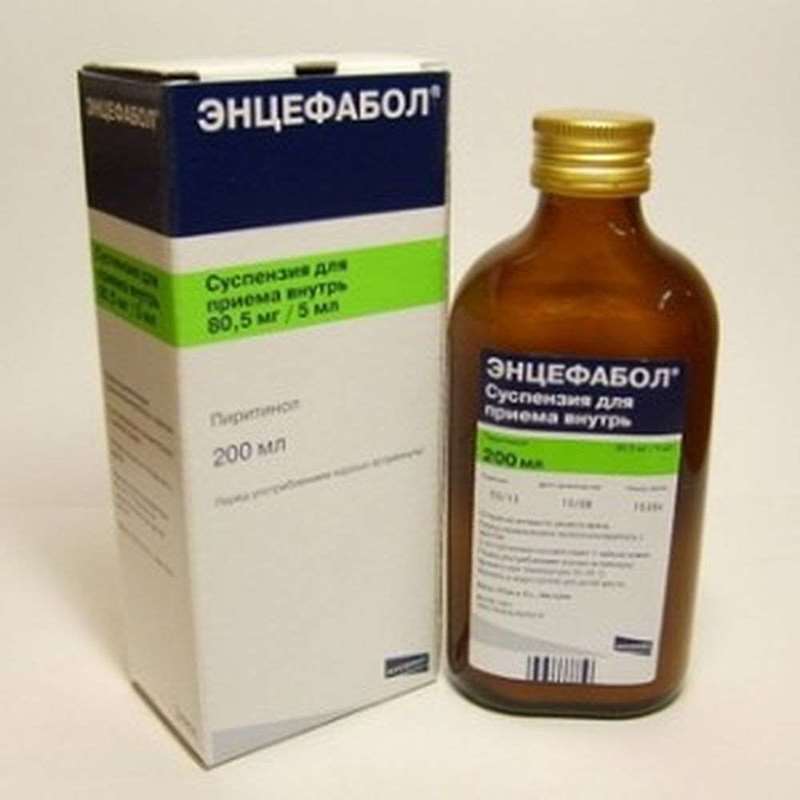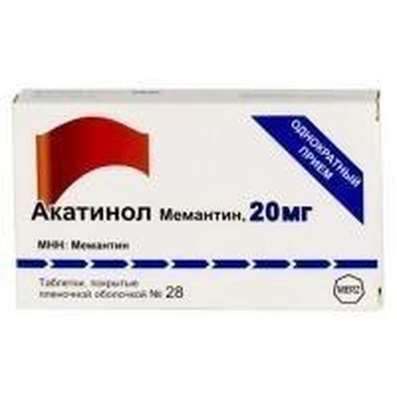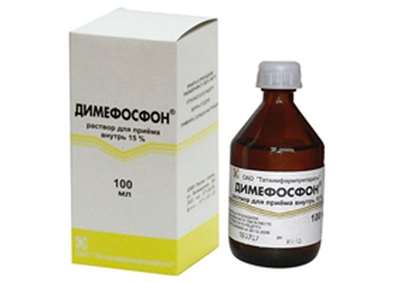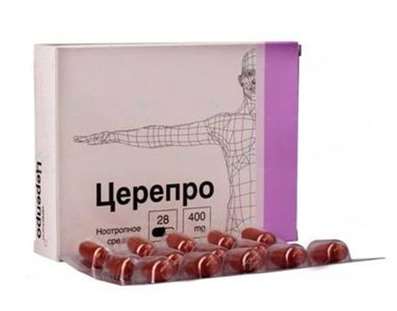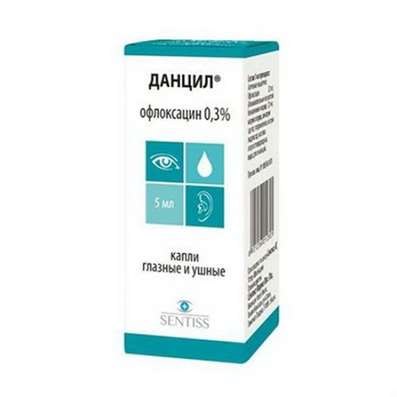Encephabol (Pyritinolum, Pyritinol) - neuroprotective drugs. Pyritinol increases pathologically decreased metabolism in the brain by increasing the capture and utilization of glucose metabolism raises the nucleic acids and the release of acetylcholine in the synapses of the nerve cells, improve cholinergic transmission between nerve tissue cells. It helps stabilize the cell membranes of nerve cells and their structure by inhibiting the function of lysosome enzymes, preventing the formation of these free radicals.
Pyritinol improve blood rheology, plasticity of the erythrocytes increases by increasing their ATP content in the membrane, which leads to lower blood viscosity and improving blood flow. Pyritinol, improving blood circulation in the ischemic areas of the brain, increases their oxygen supply; improves glucose metabolism. As a result, improved memory performance and to restore the broken metabolism in nervous tissue that contributes to the full functioning of its cells.
Pharmacokinetics:
Pyritinol rapidly absorbed after oral administration. Bioavailability is an average of 85% (76-93%). Maximum plasma concentration is reached 30-60 minutes after ingestion of 100 mg Pyritinol. The half-life of about 2.5 hours.
Pyritinol quickly metabolized. 20-40% of the material is reversibly bound to plasma proteins. Identified as major metabolites following substances: 2-methyl-3-hydroxy-4-hydroxymethyl-5-metilmerkaptometilpiridin and 2-methyl-3-hydroxy-4-hydroxymethyl-5-metilsulfinilmetilpiridin. Conjugated metabolites are excreted primarily through the kidneys. The total urinary excretion within 24 hours of 72,4-74,2%. The largest part of the administered dose is excreted in the first 4 hours after ingestion. C fecal output only 5% of the dose.
Repeated oral administration of cumulation is not observed. Toxic concentrations do not develop even with impaired renal function.
It penetrates the blood-brain barrier, metabolites accumulate predominantly in the gray matter of the brain.
Pyritinol crosses the placental barrier. The studies did not reveal any teratogenic or embryotoxic activity.
Testimony:
- Symptomatic treatment of chronic disorders of the brain functions in dementia syndromes leading to the following symptoms: impaired memory, thinking and concentration ability, fatigue, lack of meaning and motivation, affective disorders.
- Primary degenerative dementia, vascular dementia and mixed forms.
- Symptomatic treatment of chronic disorders of mental capacity.
- Post-traumatic encephalopathy.
- Cerebral atherosclerosis.
- The consequences of encephalitis.
- Mental retardation, tserebrastenicheskom syndrome, encephalopathy in children.
Pregnancy and breast-feeding:
If necessary, use encephabol during pregnancy or lactation (breastfeeding) should be related to the expected benefit to the mother and the potential risk to the fetus or infant.
Pyritinol crosses the placental barrier in small amounts excreted in breast milk.
In experimental studies have established the presence of teratogenic or embryotoxic effect Pyritinol.
Special instructions:
In patients with rheumatoid arthritis and other chronic diseases of the joints have the sensitivity to compounds which include SH-group, including to Pyritinol. These patients have increased risk of hypersensitivity reactions, immunopathological reactions and disorders of taste sensitivity and liver function. In carrying out the treatment of these patients requires systematic monitoring of common blood tests, urine, hepatic function, immunological parameters.
Hypersensitivity reactions to the drug may occur in patients with hypersensitivity to D-penicillamine, as the latter is similar to the chemical structure Pyritinol (thiol groups).
When using encephabol on the testimony, as a rule, there are no restrictions on the types of activities that require attention, fast psychomotor reactions. However, given the likelihood of an individual patient to the drug response of individual differences, at the beginning of treatment and at higher dose should be considered the possibility of breaking the speed of psychomotor reactions.
Side effects:
When receiving encephabol in accordance with the indications and at the recommended doses, side effects should be expected.
Sometimes - hypersensitivity reactions of varying severity: skin rash or mucous membranes, itching, nausea, vomiting, diarrhea, fever, insomnia.
Rarely - increased irritability, loss of appetite, headache, dizziness, fatigue, change in taste, abnormal liver function (increased levels of transaminases, cholestasis).
Drug interactions:
In an application Encephabol may potentiate the side effects of penicillamine, sulfasalazine and gold products. Clinically significant interaction encephabol with other drugs has not been established.
Suggested Use:
Take during or after meals. When sleep disturbances last daily dose should not be taken in the evening or at night.
Adults -. 2 hours, the suspension 3 times daily spoon (600 mg Pyritinol dihydrochloride monohydrate per day).
Newborns - from the 3rd day after the birth of 1 ml suspension in a day for a month, the dose taken in the morning. Starting from 2 months after birth, the dosage is increased by 1 ml each week until until it reaches a daily dose of 5 ml (1 hour. Spoon).
Children aged 1 year - 1 / 2-1 1/3 teaspoon suspension twice a day (50 to 300 mg of the dihydrochloride monohydrate Pyritinol per day depending on the indication)..
Children of 7 years - 1 / 2-2 1/3 tsp suspension twice a day (50-100 mg 300-600 Pyritinol dihydrochloride monohydrate per day depending on the indication)..
The duration of treatment depends on the clinical picture of the disease. Typically, the therapeutic success is achieved after 3-4 weeks of treatment. The best effect is usually 6-12 weeks. The duration of treatment should be at least 8 weeks and may be continued if necessary. In infants at high risk of perinatal pathology of the central nervous system mean duration of treatment is on average 6 months. After 3 months, check the presence of indications for further treatment.
Packaging:
- Comes in original packaging. Item is brand new and unopened.
Storage:
- Keep away from direct sunlight.
- Keep locked and away from children.
- Store in dry place at room temperature.
- Do not exceed storage temperature higher than 25 C
Important notice- the outer box design may vary before prior notice!

 Cart
Cart
